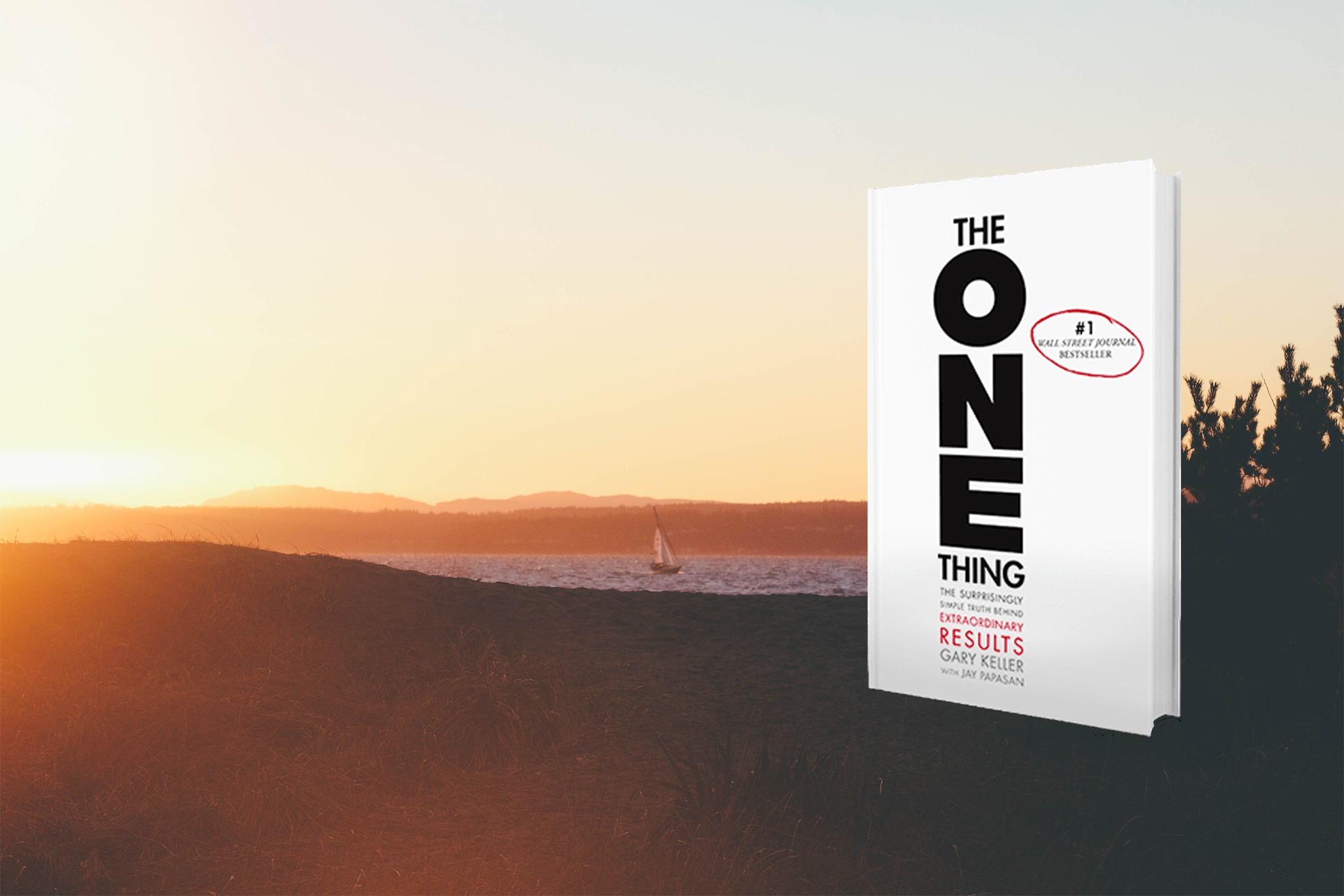
A solid reminder to focus and prioritize, but avoids important nuance which might limit its usefulness.
I heard about this book from Tim Ferriss’ 5 Bullet Friday email a while ago and was able to pick it up at the library before COVID-19 closed my local library, woot!
As I’ve grabbed time to read it through I’ve taken notes (below) and thought how to apply it.
Overall, the most important lesson I learned was that few things are actually important, and we should find what those things really are; and if you think it will be an easy process, you’re probably wrong 🙂
Note that if you want to read the book but are out of luck given your library being closed due to COVID-19, then you can read most of The One Thing here (use the “Next Post” buttons at the bottom to go through the subsequent chapters).
Here are my takes on the book, both good and bad:
Key Takeaways
- Focus on fewer things; find what you need/require for success and then remove all distractions
- Not everything matters equally. Figure out priorities and stick with them; see Pareto’s Law aka the 20% rule
- Multitasking doesn’t work. Focus!
- Discipline has to be limited to the areas that are critical for success; develop one habit at a time for 66 days each (I don’t set New Year’s Resolutions so I thought this was interesting). Also, be accountable for your goals. If not, nothing will get done.
- Willpower is a limited illusion. Use your mind less and you’re more likely to stick with your better options.
- Do the important thing when it works for you; the book suggests “early” as in morning but adjust as needed. Literally block out time on your calendar, planner, whiteboard, whatever.
- Just get started; break down complex things into small tasks.
- Demand more from life. A poem by JB Rittenhouse called “My Wage” really hits home. Also, don’t let others demand more from you. Failure is certain when you try to please everyone.
- Think about the focus of your life overall, and the focus of your life right now. What should you do now to get to the overall goal? What about 5 years from now, a year from now, a month, etc?
- The Begging Bowl story. The moral is that happiness doesn’t come from wanting more; the metaphorical bowl will become a bottomless pit of human desire and greed. I thought this was a clever way for the author to say “expect less and you’ll be happier” which is true in many cases.
Things I Didn’t Like
- Overall, the book was too “rah rah rah” for me, like a cheerleader who’s gotten stuck on the same chant and tries to break out of it by smiling harder and yelling louder. Some pep is good, but too much makes the experience feel cheap.
- Many concepts were repeated multiple times, almost to the point of redundant redundancy. I understand that repetition helps readers remember, but it annoyed more than helped me focus on the concepts. Why not instead set up the book with the top goal and then break it down into the pieces, like he suggests we do with our life goals?
- I really hate the printed-in underlines on the pithy statements. Let ME mark up the book if I so choose! (Though I would never do it, because I don’t buy books- I use the library!)
- “Balance is a lie.” I greatly disagree! The author claims “counter-balance” is a better approach, but his description of counterbalancing just sounds like “finding balance with extra steps.” I argue finding the right ratio in everything is what’s needed; while the title of the book is The One Thing, we all know there is no such thing as One Thing in life- there will always be many things to do, competing choices, and many trade offs. Searching for a healthy ratio among Those Things helps keep people on keel, and trying to argue that “balance doesn’t exist so you should juggle via counterbalance” is counter-intuitive, confusing, and misleading.
- “Big is Bad is a Lie.” Was the author really serious when the chapter ended with “And see just how big you can blow up your life”?
- Retelling A Christmas Carol to give a pithy reason for why our purpose determines who we are felt…weird. While I agree that purpose is important, I felt there are much better stories out there people can relate to than an 1800’s Christmas story.
So overall, it’s a great book that has helped a lot of people–and can help you–find success in life, but I’d consider some of the caveats called out above as you read and apply it. Good luck!